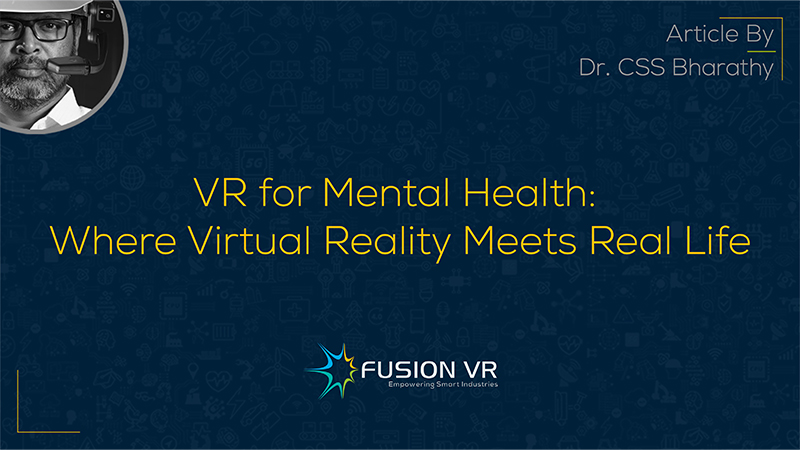Virtual Reality (VR) is quickly becoming a significant player in the mental health field. With its ability to provide immersive, distraction-free environments and access to therapies that were not previously available, VR is revolutionising the way mental health care is delivered.
At its core, VR creates a 3D environment that can be experienced through a specially designed headset. This simulated world is created to replicate the real world, giving the user a feeling of presence and immersion in the environment. The technology is being used in various fields, including gaming, education, and training, but its application to mental health care is relatively new and compelling.
Therapies include virtual Reality to treat mental health issues, from mild to severe. For example, VR has been used to successfully treat phobias, such as fear of heights and other kinds of social phobias. VR therapy is a type of psychotherapy that utilises virtual reality technology to treat mental health issues.
It can treat various conditions, such as depression, anxiety, post-traumatic stress disorder (PTSD) etc. In VR therapy, the clinician guides the patient through different virtual scenarios, helping them to confront their anxieties and process their emotions.
VR can help people with mental health issues to better understand their condition and explore innovative, non-traditional treatments. For instance, Virtual Reality therapy sessions can analyse a person’s triggers and develop coping strategies for managing stress and anxiety. It can also provide exposure therapy, introducing a person to their fears or phobias in a safe and controlled environment.
Virtual Reality (VR) is also a powerful tool for understanding and treating mental health problems. It provides a safe, immersive environment for people to explore and interact with their thoughts, feelings, and behaviours in ways that would be difficult or impossible in the real world.
Revolutionising Mental Health Treatment with Virtual Reality
Virtual Reality for mental health therapy can simulate real-life situations, allowing people to practise their social skills and learn how to manage confrontations and challenging conversations. Additionally, VR can enhance cognitive behavioural therapy, which focuses on changing negative thought patterns.
Virtual Reality therapy can create worlds that provide a safe and fun environment for people to explore their emotions and practise relaxation techniques. This can be especially useful for people with depression or addictions. Overall, the immersive experience from VR has the potential to revolutionise the way mental health conditions are understood and treated.
Virtual Reality for mental health applications provides a way to expose patients to situations similar to real-life scenarios, allowing clinicians to observe and measure the patient’s response in a safe and controlled environment. This helps clinicians identify potential triggers for anxiety and other mental health problems and assess the patient’s ability to cope with the situation. It also enables clinicians to explore different treatment strategies, such as cognitive-behavioural therapy, to help patients manage their symptoms.
VR for mental health has also been used to help clinicians diagnose mental health problems, such as depression and bipolar disorder. This technology can be used in a clinical setting to create a virtual environment tailored to the individual’s needs. This can help clinicians to observe and measure the patient’s responses.
VR can be used to help individuals understand their own emotions and behaviour better. For example, it has been used to enable individuals with PTSD to understand the trauma they experienced and to develop more effective coping strategies. As a result, VR treatments are emerging as promising tools for treating various mental health issues.
Virtual Reality is revolutionising mental health treatment. By allowing patients to engage in immersive experiences and practice skills in a safe, simulated environment, mental health providers can offer more effective and accessible care. With the right tools and training, virtual Reality can improve treatment efficacy and speed progress. It is an exciting development that could be a powerful tool in the fight against mental illness.





